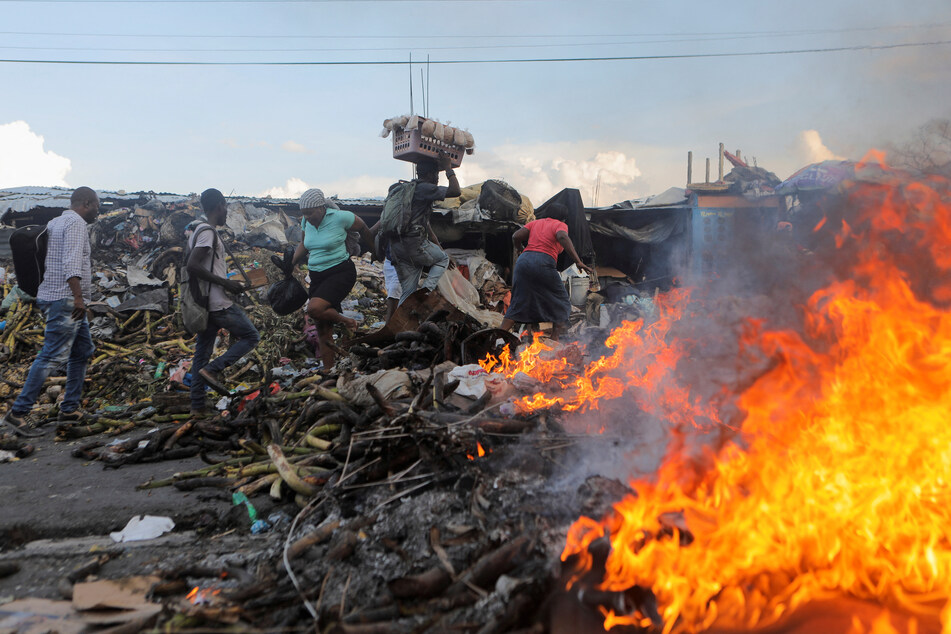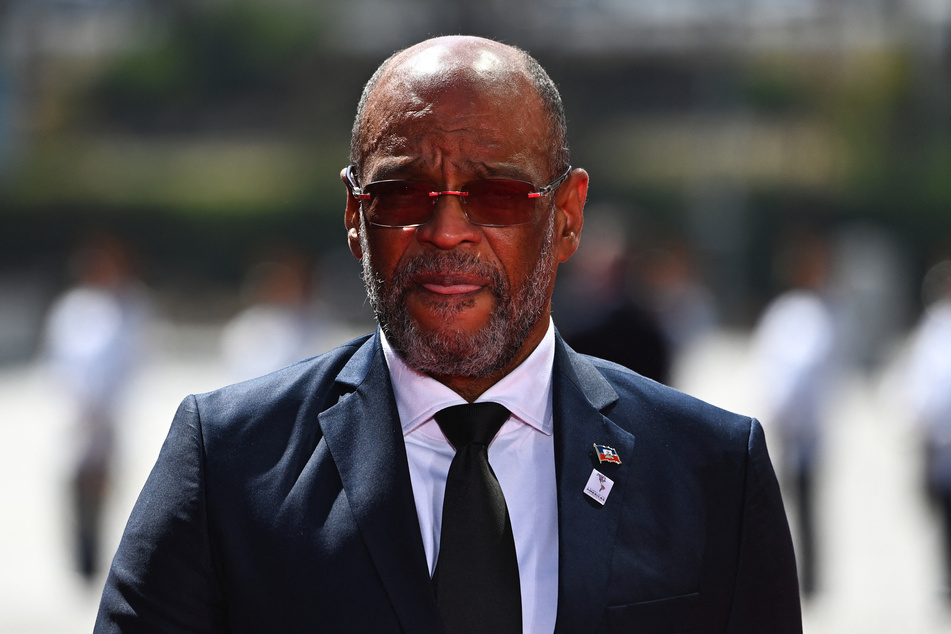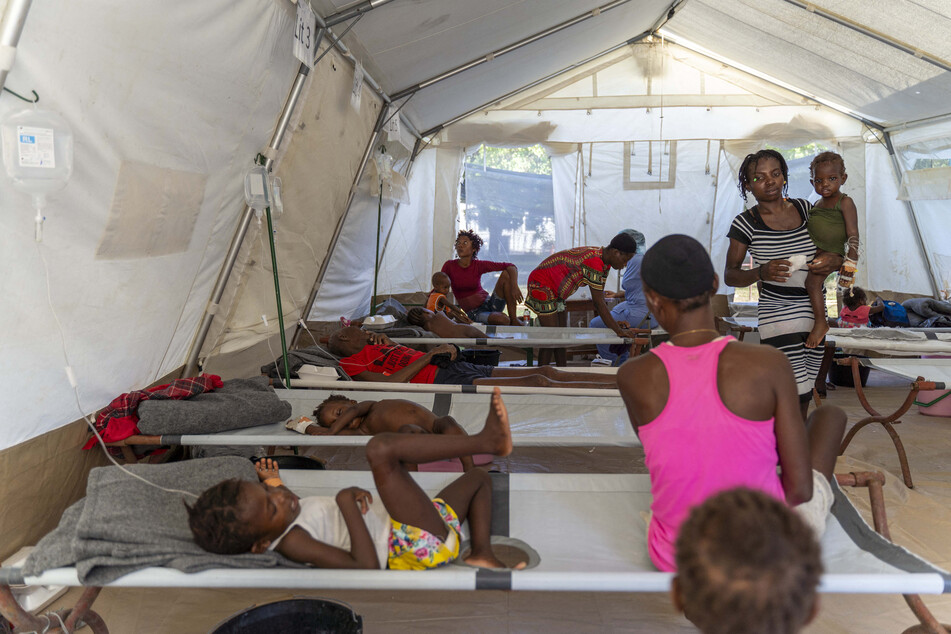US "considering" Haitian prime minister's calls for international intervention
Washington DC - The White House and the State Department are considering calls for the creation of a humanitarian corridor in Haiti to break the blockade of fuel by armed gangs and protect the delivery of aid as the country faces one of its worst health, energy, and security crises in a generation.

Officials acknowledged Friday that conversations had taken place over the past week over the deteriorating situation across Haiti.
Confirmation of a deadly cholera outbreak amid widespread civil unrest and a months-long blockade by powerful gangs of the country’s ports and main fuel terminal, Varreux, have prompted calls for international action.
On Thursday, the United Nations Integrated Office in Port-au-Prince issued a plea for the creation of a "humanitarian corridor," and on Friday, interim Prime Minister Ariel Henry officially published a request seeking the help of the country’s international partners for "the immediate deployment of a specialized armed force" in the government’s official registry, Le Moniteur.
On Friday, the State Department, authorized the temporary departure of US government employees and their family members from Haiti, citing the disruption to sanitation and the availability of medical supplies, potable water and food because of the fuel shortages.
"Food and water insecurity is an increasing concern," the US government said, noting that 60 cases of cholera have been identified in the capital, and the embassy is "extremely limited in its ability to provide emergency services to US citizens in Haiti, and is unable to provide shuttle or transportation services."
State Department "coordinating" with Haitian prime minister

While Haiti has been in crisis for some time, things have escalated since the July 7, 2021, assassination of President Jovenel Moise. The brazen killing, in which US citizens were also involved, has left the country without a president, functioning parliament, or supreme court.
Despite that reality, US officials have been reluctant to intervene, especially after Moise’s killing reopened old wounds and criticism about the deeply damaging US policy toward the country, as well as Haiti's own troubled history with past foreign military intervention, whether by the United States or by the United Nations.
State Department principal deputy spokesperson Vedant Patel told reporters Friday that the administration had received a request from the UN Resident and Humanitarian Coordinator Office in Haiti "for a humanitarian corridor to restore the distribution of fuel throughout Haiti."
"We’re considering that request and are coordinating with Prime Minister Henry and other international partners to determine how best the United States can provide additional support to Haiti, and we strongly condemn those who continue to block the distribution of fuel and other necessities to Haitian businesses," Patel said.
Dissent to calls for foreign assistance

Any humanitarian corridor would require an armed force to secure it, given the inability of Haiti’s ill-equipped and outgunned police force to take back control from the gangs by themselves.
In the decree published by Henry, the government doesn’t specify who should make up the force or how large it should be. It only calls for “a specialized armed force in a quantity sufficient enough to tackle the humanitarian crisis throughout the territory of Haiti.”
In recent months, Haitians have taken to the streets in widespread protests over the rising costs of food and fuel and demanding Henry’s departure from office.
With fuel reserves continuing to dwindle and potable water increasingly scarce, the international community is worried about how it would be able to provide aid and administer cholera treatment.
But the issue of foreign troops is sensitive in Haiti, where Henry’s critics have been criticizing him on radio since he first appealed for foreign assistance Wednesday night in an address to the nation.
The prime minister’s critics have accused him of using the fuel blockage as a pretext to call for foreign intervention to remain in power.
Cover photo: REUTERS

